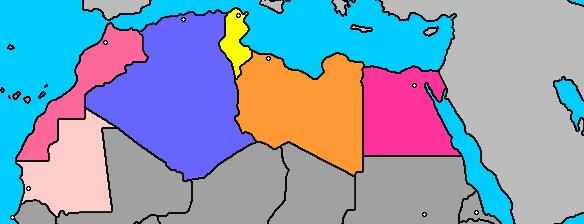On April 7-8 the S took place in the Hague, organized by the Grotius Centre for International Legal Studies, the University of Leiden, the International Victimology Institute and the department of Criminal Law of Tilburg University.
All posts by Marco Lombardi
Immigrati e clandestini – by Marco Lombardi
La questione Nord Africana ingarbuglia sempre di più la faccenda degli immigrati verso l’Italia. Una faccenda che dobbiamo assolutamente controllare ma… la molteplicità di aspetti che la contraddistinguono rende difficile una risposta adeguata se non la si spoglia delle sue “attitudini” politiche” per riposizionarla nelle necessità di governo:
Il terremoto in Giappone dell’11 Marzo 2011: nuove considerazione per la sociologia e il crisis management – by Barbara Lucini
Ci sono ancora tante questioni e ve ne saranno in futuro, da esprimere e considerare circa il terremoto in Giappone dell’11 Marzocon magnitudo 9.0 della scala Richter.Prima di tutto,lamagnitudo, l’intensità e la durata di questo terremoto verificatosi in una delle zone del mondo a maggiore rischio sismico è stata una delle più alte nel corso della storia dei terremoti del Giappone e del mondo.
Minaccia del terrorismo dal Nord Africa
Prima Gheddafi poi Putin definiscono l’intervento in Libia una “crociata”, utilizzando così un pericoloso vocabolario qaedista che ha sempre legittimato gli interventi terroristici del jihadismo radicale. Da Gheddafi è comprensibile. Da Putin meno, anche se lo si legge nell’ambito della campagna politica per le prossime presidenziali e a supporto delle tesi al riarmo russo per arginare l’interventismo americano.
La rivolta nord africana: perché “partecipare” – by Marco Lombardi
Dalla Tunisia attraverso l’Algeria fino all’Egitto – per fermarsi alla riva sud del Mediterraneo – le fiamme della rivolta hanno cambiato definitivamente il panorama politico di quella sponda del nostro mare. L’innesco è stato differente ma gli esiti tendono alla medesima incerta destinazione fatta di richiesta di liberta, miglior vita, forse democrazia.
Due interessanti novità su cui ITSTIME sta lavorando in questo avvio di 2011.
Pacchi postali dallo Yemen – by Marco Lombardi
È da tempo che si parla dello Yemen come della nuova base “della base” (Al Qaeda). Ma sono storie vecchie – tuttora verificabili sul campo come ho avuto occasione di fare negli ultimi anni – che meritano una riflessione perché non meno attuali. Lo Yemen da sempre è la culla di Osama e i monti del nord sono il transito incontrollato di miliziani e armi a buon prezzo. La sua storia intreccia i percorsi di re e regine tra Africa e Arabia via Corno d’Africa (Somalia): anche adesso intrecci meno regali.
Risuona nel mondo mediatico la dichiarazione di padre Terry Jones – di Marco Lombardi
Oggi, 8 settembre, risuona nel mondo mediatico la dichiarazione di padre Terry Jones, di una chiesa battista americana ( http://www.doveworld.org/ ) che, incurante degli appelli di diplomatici invita gli americani a “bruciare in piazza il Corano ” per onorare le vittime dell’11 settembre. Lui dice, lo farà. L’iniziativa è stata duramente condannata da Al-Azhar, la massima istituzione sunnita del Cairo, dalla Lega araba e dal Vaticano che definisce il “gesto di grave oltraggio”.
Pakistan: l’immagine di una catastrofe – by Barbara Luicni
Le informazioni aggiornate sulla situazione delle alluvioni in Pakistan di questa estate del 2010 sono le seguenti: 18,6 milioni di persone colpite, morti ufficiali 1,677, abitazioni distrutte o danneggiate 1,25 milioni.
Questa catastrofe è ancora una volta, l’occasione per riflettere circa quanto accaduto di peculiare nella gestione della crisi, in particolare quattro questioni.
Il pericolo dei civili armati da Petraeus – by Claudio Bertolotti
Fonte: Afghanistan: Sguardi e analisi (http://claudio-bertolotti.blogspot.com)
La counterinsurgency avviata dal generale McChrystal, poi ereditata dal successore Petraeus e volta a ridurre la dispersione militare sul terreno per concentrarsi sui centri abitati di medio-alta intensità, ha di fatto contribuito a rendere le aree eriferiche più sicure per i taliban, e i gruppi di opposizione in genere che vi operano, con la collaborazione, volontaria o imposta, delle popolazioni locali.
Italy and Greece: “una faccia una razza” also in terror – by Maria Alvanou
Italy and Greece are neighbour countries with strong cultural ties for thousands of years. It seems like the bonds between Italy and Greece may be expanding also in terrorism. Recently the terror campaign that is troubling Greece struck the heart of the State. A bomb that arrived to the building of the Ministry of Citizen’s Protection (Former Ministry of Public Order) addressed personally to the minister himself, exploded killing a high rank Police Officer. The victim was going through the minister’s mail for control[1]. The responsibility for this attack has been claimed by a new group, though the authorities express doubts about the originality of this claim[2].


